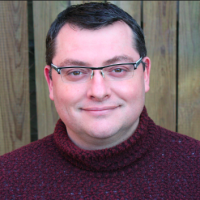Episode 30: German Politics Heats Up

Eric Langenbacher
Senior Fellow; Director, Society, Culture & Politics Program
Dr. Eric Langenbacher is a Senior Fellow and Director of the Society, Culture & Politics Program at AICGS.
Dr. Langenbacher studied in Canada before completing his PhD in Georgetown University’s Government Department in 2002. His research interests include collective memory, political culture, and electoral politics in Germany and Europe. Recent publications include the edited volumes Twilight of the Merkel Era: Power and Politics in Germany after the 2017 Bundestag Election (2019), The Merkel Republic: The 2013 Bundestag Election and its Consequences (2015), Dynamics of Memory and Identity in Contemporary Europe (co-edited with Ruth Wittlinger and Bill Niven, 2013), Power and the Past: Collective Memory and International Relations (co-edited with Yossi Shain, 2010), and From the Bonn to the Berlin Republic: Germany at the Twentieth Anniversary of Unification (co-edited with Jeffrey J. Anderson, 2010). With David Conradt, he is also the author of The German Polity, 10th and 11th edition (2013, 2017).
Dr. Langenbacher remains affiliated with Georgetown University as Teaching Professor and Director of the Honors Program in the Department of Government. He has also taught at George Washington University, Washington College, The University of Navarre, and the Universidad Nacional de General San Martin in Buenos Aires, Argentina, and has given talks across the world. He was selected Faculty Member of the Year by the School of Foreign Service in 2009 and was awarded a Fulbright grant in 1999-2000 and the Hopper Memorial Fellowship at Georgetown in 2000-2001. Since 2005, he has also been Managing Editor of German Politics and Society, which is housed in Georgetown’s BMW Center for German and European Studies. Dr. Langenbacher has also planned and run dozens of short programs for groups from abroad, as well as for the U.S. Departments of State and Defense on a variety of topics pertaining to American and comparative politics, business, culture, and public policy.
__

Jeff Rathke
President of AGI
Jeffrey Rathke is the President of the American Institute for Contemporary German Studies at the Johns Hopkins University in Washington, DC.
Prior to joining AICGS, Jeff was a senior fellow and deputy director of the Europe Program at CSIS, where his work focused on transatlantic relations and U.S. security and defense policy. Jeff joined CSIS in 2015 from the State Department, after a 24-year career as a Foreign Service Officer, dedicated primarily to U.S. relations with Europe. He was director of the State Department Press Office from 2014 to 2015, briefing the State Department press corps and managing the Department's engagement with U.S. print and electronic media. Jeff led the political section of the U.S. Embassy in Kuala Lumpur from 2011 to 2014. Prior to that, he was deputy chief of staff to the NATO Secretary General in Brussels. He also served in Berlin as minister-counselor for political affairs (2006–2009), his second tour of duty in Germany. His Washington assignments have included deputy director of the Office of European Security and Political Affairs and duty officer in the White House Situation Room and State Department Operations Center.
Mr. Rathke was a Weinberg Fellow at Princeton University (2003–2004), winning the Master’s in Public Policy Prize. He also served at U.S. Embassies in Dublin, Moscow, and Riga, which he helped open after the collapse of the Soviet Union. Mr. Rathke has been awarded national honors by Estonia, Latvia, and Lithuania, as well as several State Department awards. He holds an M.P.P. degree from Princeton University and B.A. and B.S. degrees from Cornell University. He speaks German, Russian, and Latvian.
__

Julian Mueller-Kaler
Stimson Center
Julian Mueller-Kaler is the Director of the Strategic Foresight Hub in the Executive Office at the Stimson Center and also serves as Chief of Staff to the President and CEO. He coordinates and manages special projects, advises on strategy, and supports institutional advancement. As director of the Hub, he researches global trends, evaluates the implications of emerging technologies on society and politics, and writes about the rise of populism, US-China relations, and the future of the liberal international order.
Before joining Stimson, Mueller-Kaler was a resident senior fellow with the Atlantic Council GeoTech Center and the Scowcroft Strategy Initiative where he worked on the geopolitics of technology and lead the GeoTech Center’s AI Connect program – a joint work stream with the U.S. Department of State that encouraged the responsible stewardship of AI technologies in the Global South. He also serves as a non-resident fellow at the American-German Institute, is an associate fellow at German Council on Foreign Relations (DGAP) in Berlin, and previously consulted in the office of the German Executive Director at the World Bank Group. Mueller-Kaler graduated as a Fulbright-Schuman scholar (MA) from Georgetown University’s School of Foreign Service and holds a degree in International Relations (BA) from Zeppelin University in southern Germany.
He was a 2017-2018 participant in AICGS’ project "A German-American Dialogue of the Next Generation: Global Responsibility, Joint Engagement," sponsored by the Transatlantik-Programm der Bundesrepublik Deutschland aus Mitteln des European Recovery Program (ERP) des Bundesministeriums für Wirtschaft und Energie (BMWi).
German political dynamics have made an early and perhaps unexpected change this summer, coming out of the “Sommerloch,” with two new announcements from the Social Democratic Party. First, the SPD announced that it would look for and be willing to participate in a left-wing coalition after the 2021 election (with the Greens and the Left Party)—a change from its many years in a Grand Coalition. And second, the party announced—a bit early—that it has selected its chancellor candidate for the 2021 election: Olaf Scholz, currently the Vice Chancellor and Federal Minister for Finance. Among the most centrist in SPD leadership, Scholz sought but failed to win the party leadership last year. Interestingly, at the same time that the SPD is shifting to the left in terms of its desired coalition, it has also picked an ultra-centrist as its candidate.
On this episode of The Zeitgeist, Jeff Rathke, Dr. Eric Langenbacher, and Julian Mueller-Kaler discuss these recent developments in Germany’s center-left party. They also discuss the state of the CDU as Merkel’s retirement looms, the future for the Greens, and how the pandemic has affected political party support across the spectrum, including of the far-far Alternative for Germany.
Host
Jeff Rathke, President, AGI
Guests
Eric Langenbacher, Senior Fellow and Director, AGI Society, Culture & Politics Program
Julian Mueller-Kaler, Resident Fellow, Atlantic Council; Non-Resident Fellow, AGI






